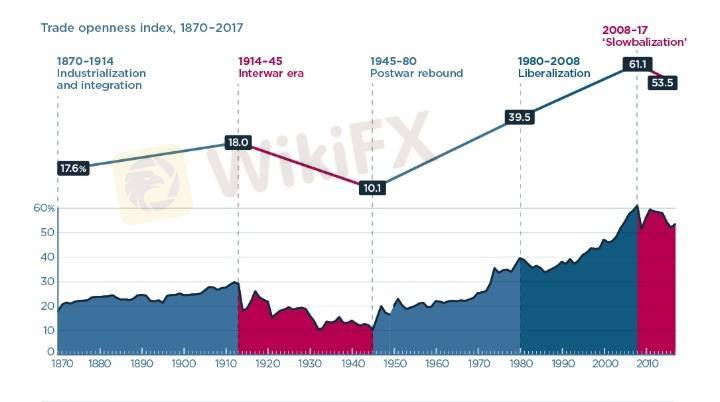
2025-02-15 03:05
业内Globalization and deglobalization
Globalization and deglobalization are two opposing trends shaping the modern world. Here’s a breakdown of both:
Globalization Trends
Globalization refers to the increasing interconnectedness of countries through trade, technology, culture, and politics. Recent trends include:
1. Digital Transformation – The rise of the internet, AI, and cloud computing has made global communication and collaboration easier.
2. Global Supply Chains – Companies source materials and labor from multiple countries to optimize costs and efficiency.
3. Cultural Exchange – Streaming services, international travel, and social media spread cultural trends worldwide.
4. Remote Work & Online Learning – Technology enables cross-border work and education, making global talent more accessible.
5. International Trade Agreements – Organizations like the WTO promote trade liberalization and global economic cooperation.
Deglobalization Trends
Deglobalization refers to the retreat from global interdependence, often driven by political, economic, or security concerns. Recent trends include:
1. Supply Chain Reshoring – Companies bring production closer to home to reduce dependency on foreign suppliers.
2. Rise of Nationalism – Countries prioritize local interests, leading to stricter immigration and trade policies.
3. Regionalization – Instead of global partnerships, nations focus on regional alliances (e.g., African Continental Free Trade Area).
4. Cybersecurity & Data Sovereignty – Governments push for local data storage and tighter regulations on international tech firms.
Both trends are occurring simultaneously, with some industries embracing globalization while others push for more localized control. Which aspect interests you more?
#firstdealofthenewyearstlz
赞 0

BamiCreative
وسطاء
热门讨论
业内
哎,现在明白不赌就是赢啊
行情分析
美元/加元技术面
技术指标
外汇技术分析之波浪理论
业内
[活動]論交易,贏取200元話費補貼
技术指标
EZ.Fury Kite是基于趋势指标MA进行判断
技术指标
指标派是什么?
集市分类

平台

展会

IB

招聘

EA

业内

行情

指标
Globalization and deglobalization
 香港 | 2025-02-15 03:05
香港 | 2025-02-15 03:05Globalization and deglobalization are two opposing trends shaping the modern world. Here’s a breakdown of both:
Globalization Trends
Globalization refers to the increasing interconnectedness of countries through trade, technology, culture, and politics. Recent trends include:
1. Digital Transformation – The rise of the internet, AI, and cloud computing has made global communication and collaboration easier.
2. Global Supply Chains – Companies source materials and labor from multiple countries to optimize costs and efficiency.
3. Cultural Exchange – Streaming services, international travel, and social media spread cultural trends worldwide.
4. Remote Work & Online Learning – Technology enables cross-border work and education, making global talent more accessible.
5. International Trade Agreements – Organizations like the WTO promote trade liberalization and global economic cooperation.
Deglobalization Trends
Deglobalization refers to the retreat from global interdependence, often driven by political, economic, or security concerns. Recent trends include:
1. Supply Chain Reshoring – Companies bring production closer to home to reduce dependency on foreign suppliers.
2. Rise of Nationalism – Countries prioritize local interests, leading to stricter immigration and trade policies.
3. Regionalization – Instead of global partnerships, nations focus on regional alliances (e.g., African Continental Free Trade Area).
4. Cybersecurity & Data Sovereignty – Governments push for local data storage and tighter regulations on international tech firms.
Both trends are occurring simultaneously, with some industries embracing globalization while others push for more localized control. Which aspect interests you more?
#firstdealofthenewyearstlz
赞 0
我也要评论
提问
0条评论

还没人评论,赶紧抢占沙发

提问
还没人评论,赶紧抢占沙发